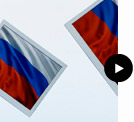A promising connection
Technology, Media & Telecom is one of the most promising sectors within the Russian-Dutch cooperation. The two countries complement each other, with the Russians known as masterminds in programming and mathematics, and the Dutch excelling at the application and marketing of innovations.
Which country on our continent has the most internet users? The answer is Russia. On the Moscow Metro, which offers free internet access, you can barely move due to laptops, tablets and smartphones. But the digital revolution is not confined to the metropolis, it is happening throughout this vast country. Around 58 million Russians currently have access to the internet. The rise of smartphones and tablets is expected to push this number higher, resulting in an internet penetration level of over 50 per cent. At the same time this means that there is still significant further growth potential.
It has already become impossible to imagine the Netherlands without internet. It is becoming a commodity, like electricity, heating and water. With a penetration level of 92 per cent, the Netherlands is the second-most connected country in Europe after Norway. The Dutch are known for their rapid adoption of technological innovations.
Given the ongoing internet revolution it goes without saying that ICT presents great opportunities for both the Netherlands and Russia. It is one of the few sectors with major growth potential. In both countries the sector already accounts for around one-twentieth of GDP.
However, there are differences in their respective strengths, and it is these differences that offer great perspectives for their combined forces. The two countries complement each other well.
Russia, software whizzes
ICT is a field in which Russia is really able to set itself apart. “The TMT sector does not come with baggage. It is one of the most modern and fastest growing sectors,” said Lighthouse Group’s Jeroen Ketting who advises Dutch companies on the Russian market. The Russian ICT market is growing at around 5 per cent a year. The ICT sector already provides employment to almost one million Russians, of whom 350,000 are engaged in software development. There is still room for further growth because with 60,000 new IT graduates being produced each year, the employment potential is huge. There are great talents among these graduates. Russia has a long history of producing mathematics and IT geniuses, such as Google’s Sergej Brin, and information security expert Eugene Kaspersky. And they will definitely not be the last whizz kids; the Russians have dominated the programming world championships for several years now with an impressive haul of gold medals to their name.
In the past Russia struggled to reap the benefits of this elite corps of geniuses and suffered talent bleed to other countries. It also had limited success in translating the know-how into international business. But slowly but surely the country is getting better at it. Russia boasts flourishing companies such as IT service provider Luxoft, antivirus company Kaspersky Lab, games company 1C, and outsourcers such as Auriga and Artezio. Investors are also finding their way to the sector with investment in [Russian] internet companies soaring from 225 million U.S. dollars in 2010, to 540 million the following year. In software and outsourcing things have already taken off (see: ‘Russia’s exploding IT sector’), with Russia now ranked third among the top outsourcing companies, after India and the United States.
According to Pavel Adylin, chairman of Russian IT umbrella organisation Russoft (and CEO of Artezio), outsourcing to Russia is a very attractive option for Dutch companies. “Russian companies achieve high quality. The country is the European number one in terms of certification. In addition we are relatively nearby in terms of time zone; a flight from Moscow to Amsterdam only takes three hours.” As noted earlier, Dutch companies that outsource their ICT to Russia stand to benefit from a large pool of highly trained workers with strongly developed analytical skills. Russia used to find it hard to hold onto this talent, with many leaving for the West lured by the far higher salaries. But this would appear to be changing. “Large Russian companies now offer talented staff conditions that are comparable to other countries,” says Adylin. He pointed out that Russia has another advantage when it comes to outsourcing: it is closer to the European culture than Asian countries. “That makes communication much easier.”
Przemek Berendt, VP global marketing of Luxoft, concurs. He says that Russians will not nod yes when they do not understand or are unable to deliver. “We do not have a yes culture, such as you sometimes see in Asian countries.” Berendt explained that Russian companies such as his have adopted a very international business culture. This is not only evident from the global network of branches but also from the way in which the enterprise operates, with close attention paid to human resources, innovative projects and corporate social responsibility.
The Netherlands, testing ground for internet
The Netherlands is in a different position from Russia, with the ICT sector clearly booming less. The home market is under pressure from the economic recession. As a result there is some contraction in the ICT market, albeit less than in the overall economy. Despite this the Dutch government expects ICT to grow in importance in the period ahead. Government policy promotes the application of digital technology in nine ‘top sectors’ for the economy. The demand for technical staff is expected to continue growing, with the country even predicted to face a shortfall of 6,800 ICT professionals in 2017 (source: ICT Marktmonitor). This will partly be resolved by bringing in professionals from abroad.
Internet and telecom are the engine of growth for the Dutch ICT market. The country’s high level of internet penetration makes it very attractive to foreign parties, for example as a testing ground for new internet applications. The Netherlands is also known as an internet throughput country and exchange point. The Amsterdam Internet Exchange (AMS-IX) is the second-largest internet hub in the world. The Netherlands is a net exporter of bandwidth and a European leader in this area (see: ‘Bandwidth:Growth in the Netherlands and Russia’). This means that data giants such as Disney and Google route much of their traffic via the Netherlands.
The Dutch business sector can also act as an excellent partner to smaller companies operating in ICT, for example when it comes to placing products in the market. A good example of how this can work is the cooperation between Dutch marketing company Emeago and the St. Petersburg-based Russian developer Computer Vision Systems. The latter creates motion recognition technology that enables consumers to interact remotely with screens. The technology can be applied in areas such as outdoor and advertising. Emeago helps Computer Vision Systems to market the product in Europe. Computer Vision Systems CEO Vladimir Ufnarovsky: “In Russia we have a large number of inventors who come up with the greatest stuff. The problem is that we don’t yet have enough people to convert it into marketable products. That is where our Dutch colleagues can help us out.” .
Source: Innovation is our inspiration, session NRBM 2013
Bandwidth
Growth in the Netherlands and Russia
The Netherlands is one of the top four European countries in terms of international bandwidth. This bandwidth is still growing rapidly at a rate of 50 per cent a year. At 75 to 80 per cent, the growth rate in Russia is even faster, albeit that the country is still at a relatively low level.
Source: Equinix
Russia’s exploding IT sector
Export of Russian software and software services accelerating
Anyone who mainly thinks of Asia at the mention of software and outsourcing is underestimating Russia. Russian exports of software products and services are on the up. Worth just under one billion euros in 2005, the market has been growing by around one billion euros a year ever since and is expected to reach around six billion euros this year.
Source: Russoft

